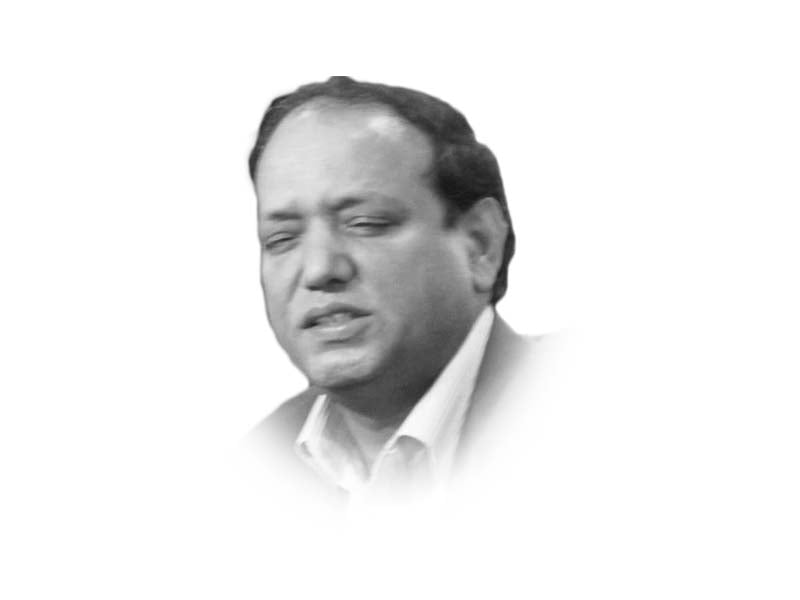
Although two excellent right to information laws have been enacted in the shape of the Khyber-Pakhtunkhwa (K-P) Right to Information 2013 and the Punjab Transparency and Right to Information Act 2013, the anti-information legal regime that has fed and sustained the colonial culture of secrecy is not only still intact, it is also used by the bureaucracy to protect its secretive ways of conducting business. In this connection, notwithstanding the overriding powers of the Punjab and K-P right to information laws, West Pakistan Government Servants (Conduct) Rules 1966, Punjab Rules of Business and other such laws, contain provisions contrary to the spirit of these laws and have the potential to be used to discourage citizens to exercise their right to information.
If one goes through the rules of business adopted to run public bodies, one would realise that this blackout of information is institutionalised. While protecting information from disclosure seems to be everybody’s business, sharing information with citizens about functions of public bodies is nobody’s business so far as rules of business are concerned.
If the quality of life of the citizens is to be improved, information about the functions performed by public bodies will have to be shared in a proactive and easily accessible manner that is also easily understood by all citizens. Furthermore, legal regimes like that of West Pakistan Government Servants (Conduct) Rules 1966 and the Official Secrets Act 1923, need to be amended and brought in harmony with the spirit of the newly enacted right to information laws.
Public officials in Punjab carry out their duties in line with the Punjab District Government Rules of Business 2001. It is disconcerting to note that while each task to be performed by a district public body is clearly described in the rules, there is absolutely no mention as to how information is to be shared with citizens. In fact, Section 17 of the Punjab District Government Rules of Business 2001 talks about protecting official information, but there is no provision about sharing information with citizens.
Hence, as is abundantly clear, the focus is on protecting information rather than sharing it with citizens. In this connection, it is of vital importance that it is made binding on district public bodies to share information with citizens about all the tasks they are assigned to perform under rules of business. In a nutshell, each task to be performed by a public body should be seen through the information-sharing prism and while assigning the task to be performed by a public body, each public body should also be directed regarding how to share information about it with citizens.
For example, if you talk to farmers about their information needs, you will come to know how district agriculture departments are failing to provide even the most basic of information that could be a game changer in terms of improving their livelihoods. They would tell you how timely information about the weather would help them as an early warning could assist them save precious resources. It should not come as a surprise if one is told that the field staff does not visit poor farmers on one pretext or the other, but is at the beck and call of rich farmers. Consequently, farmers are being increasingly thrown at the mercy of market forces needlessly. During my conversations with farmers as a part of a study about their information needs assessment, I was shocked to hear their allegations outlining how some staff of the agriculture department also work for private companies. I have given examples from only one sector, but be it education, health, environment, or for that matter, any other department, the fact is that people are not getting access to the vital information they need.
It is not difficult to provide people the information they need in the manner and language they understand. In this day and age when information and communication technologies (ICT) are impacting us all in various ways, the time has come to use these to redefine the outdated ways of delivering public services to citizens. Already, the Punjab Information Technology Board has developed excellent tools which the Punjab government is employing for performance monitoring purposes in certain sectors. What the Punjab government needs to understand is that the information-collection approach geared towards the performance monitoring of officials needs to be augmented with an information-sharing approach to provide timely and relevant information to citizens. The Punjab government has always made tall claims about good governance and transparency. If it is serious about good governance in the province and wants to set an example to other provinces, it will have to ensure that the rules of business to be framed for the Punjab Local Government Act 2013 are structured on the premise of sharing information with citizens and that ICTs are also put to use for this purpose.
Published in The Express Tribune, August 13th, 2015.
Like Opinion & Editorial on Facebook, follow @ETOpEd on Twitter to receive all updates on all our daily pieces.


1725443747-0/Untitled-design-(5)1725443747-0-165x106.webp)











COMMENTS (1)
Comments are moderated and generally will be posted if they are on-topic and not abusive.
For more information, please see our Comments FAQ